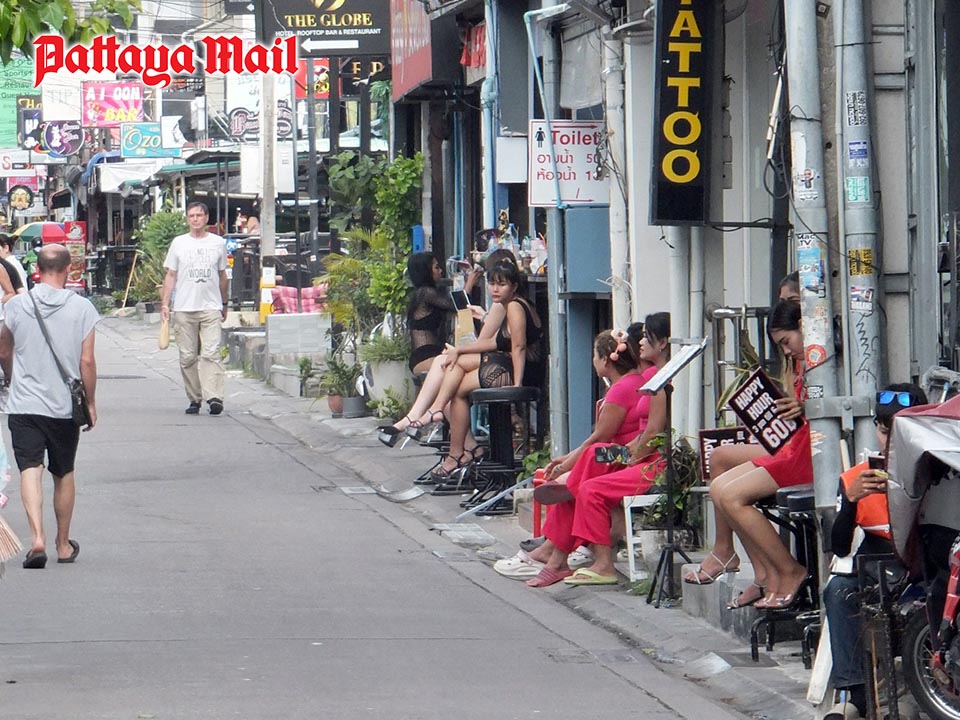Pattaya’s off-season sees expats citing exchange rates, not Thailand, for changing experience
Longtime visitors say weak foreign currencies, high airfares, and inflated hotel rates are keeping travelers away during Pattaya’s slow season — and you have to be quick to grab the good deals. (Photo by Jetsada Homklin)
PATTAYA, Thailand — As Pattaya moves deeper into its traditional low season, local businesses and long-term visitors are reporting an unusually subdued atmosphere — with many attributing the slowdown primarily to unfavorable currency exchange rates.
The Australian dollar has dropped below 21 baht, down significantly from the 32-baht range seen in the early 2010s. The British pound is also underperforming, compounding travel costs for UK tourists already facing rising expenses at home. For many would-be travelers, the math simply doesn’t add up — when flights alone can cost upwards of £1,000, the casual two- or three-trips-a-year tradition has become far less attainable.
Although some visitors point out that Thailand itself isn’t to blame — noting the issue lies more with global economic shifts than with local pricing — the impact on tourist numbers is nonetheless being felt on the ground.
Among veteran visitors and business owners, confidence in the traditional high season is waning. Many now question whether Pattaya’s once-reliable winter tourism boom still exists in a post-pandemic, inflation-hit world.
This past April’s Songkran festival brought a temporary spike in activity, but several local operators say business quickly tapered off afterward. Some are hopeful for a rebound in November, citing Pattaya’s history of resilience, but others remain skeptical — noting that recent “high seasons” have felt increasingly muted.
Tourism demographics are also shifting. Some regulars have observed a decrease in Western travelers, offset partially by increases from Indian and regional markets. Meanwhile, hotel rates in central Pattaya remain elevated — in some cases comparable to prices in the UK — leaving many price-sensitive tourists to explore alternatives such as long-term condo rentals.
While the exchange rate is a major factor, rising airfares and accommodation costs are compounding the problem. Air travel prices have fallen slightly from post-pandemic peaks, but many travelers say they’re still far too high, particularly given limited airline competition and added fees.
Calls grow for Thailand to ease long-stay visa rules and recognize the economic role of foreign residents. (Photo by Jetsada Homklin)
Hotel rates, too, have remained stubbornly high. What were once affordable escapes are now prompting cost comparisons with destinations closer to home. For many, the solution is shifting toward longer stays in rented condos, where monthly costs offer better value.
For some long-term expats, Pattaya’s current challenges reflect a broader disconnect between nostalgic expectations and present-day realities. The era of 30-baht street food, 50-baht beers, and budget flights is long gone — but a segment of visitors still compares today’s prices to those from 10 or even 15 years ago.
While some argue that local prices for food, transport, and general living remain relatively stable — especially compared to inflation in Western countries — they acknowledge that entertainment and nightlife costs have noticeably risen. Coupled with weakened currencies, this creates a perception that Pattaya has become “too expensive,” even if the numbers don’t fully support that claim.
Beyond prices, many expats believe Thailand needs to rethink its visa policies and approach toward long-stay tourists. There is a growing sentiment that Western visitors, particularly retirees and seasonal residents, contribute significantly to the local economy — and should be treated less like short-term tourists and more like stakeholders.
There’s also a call for greater consistency in policy-making, with some suggesting that easing visa requirements or improving clarity around long-stay options could help stabilize tourism numbers in uncertain economic times.
Despite the quieter streets and uncertain forecasts, some residents caution against declaring a downturn too soon. Pattaya, they note, has seen similar lulls before — only to bounce back stronger a few months later.
For now, the city remains in a holding pattern, with many eyes on the final quarter of the year. Whether the traditional high season returns in full force may depend less on Thailand’s actions, and more on global currency trends, airline pricing, and travelers’ sense of value in an increasingly competitive tourism market.



